January 2022: Olive Tree

Volume VI/Issue 10/January 2022


From The Editorial Desk
Heaven's Best Gift
“Thanks be God for his unspeakable gift.”—II Cor. 9:15.
Sparing nothing, the Lord God of Heaven gave the best that Heaven had, the Lord’s best, to provide for us what we could not provide for ourselves. When the Bible says, “...that he gave...” (John 3:16), it was truly a gift of love.
Amazingly, “while we were yet sinners” (Rom. 5:8)—indeed, we were unlovely and unloving; yet the Lord loved us. When we had nothing to give in return, He gave Himself for us.
“For you know the grace of our Lord Jesus Christ, that being rich he became poor, for your sakes; that through his poverty you might be rich. ”—II Cor. 8:9.
The gift of God’s Son, the Lord Jesus, the Christ, represents the greatest of all gifts. Nothing else I have ever seen or heard compares to it.
“In this is charity: not as though we had loved God, but because he hath first loved us, and sent his Son to be a propitiation for our sins.”—I John 4:10.
As a result of His gift for us, we are afforded the privilege to receive the gift of salvation and eternal life.
“But as many as received him, to them gave he power to become the sons of God, even to them that believe on his name.”—John 1:12.
“...the life I now live in the flesh I live by faith in the Son of God, who loved me and delivered himself for me. ”—Gal. 2:20.
During this Christmas, let’s remember that Heaven did provide the greatest gift possible for us. What a privilege it is to give to the Lord and to give to others! Since the Lord loves a cheerful giver (II Cor. 9:7), I’m confident that our gifts to Him and our gifts given in His name to others will be acceptable and pleasing to Him.
In a similar way, we should consider giving ourselves—our gift to Him—in full surrender and in full dedication. It is something we can all do if we simply will do it. Remember that “Heaven’s Best Gift” was a gift for us that should spark our motivation to make the gift of ourselves to Him. I do hope and pray that it will.


We Do Not Fall Into Sin
"For a just man shall fall seven times and shall rise again: but the wicked shall fall down into evil." (Proverbs 24:16) We have a bad habit of saying that we fall into sin, when many times we rush towards it merrily. So let us not dismiss sin lightly, because sin is a serious matter.
One reason sin flourishes is that it is treated like a cream puff instead of a rattlesnake. Let us take this to heart and analyze sin. There are three kinds of sin. Some may say, there are only two, but in reality there actually are three when we think about it. There is mortal sin, deliberate venial sin and in-deliberate venial sin.
Let us begin with in-deliberate venial sin first. This is the small sin that we actually fall into, such as when we stub our toe and an indecent word flies out. This is the type of sin that the just man falls into seven times a day.
Next let us consider deliberate sin. This is a sin that we think out and commit willingly and knowingly. We include everything here from gluttony and lust to lying and murder. When we go to an all-you-can eat buffet, are we possibly thinking about eating all we can instead of what we need to maintain our strength and health? Are we letting our food be our medicine as we should or are we digging our graves with our teeth. When we drive to the buffet, we do not fall into sin, we walk willingly to it, if that is our intention.
The only difference between deliberate venial sin and mortal sin is the seriousness of the matter. In mortal sin the matter is serious and we have reflected on it sufficiently as well as consenting fully. Deliberate venial sin is a lighter matter, which we reflect on and consent to fully. "To him therefore who knoweth to do good, and doth it not, to him it is sin." (James 4:17) We know what we should do, but we set that aside in some areas of our lives and indulge ourselves. "For many walk, of whom I have told you often (and now tell you weeping), that they are enemies of the cross of Christ; whose end is destruction; whose God is their belly; and whose glory is in their shame; who mind earthly things." (Philippians 3:18-19) How many of us are: "lovers of pleasures more than of God:" (II Timothy 3:4) And these are some reasons we walk willingly towards sin and adopt the attitude that this is only a venial sin.
Let us take time to consider our actions and our lax attitude towards sin. Are we treating sin like a cream puff or a bowl of ice cream. Consider that there are deadly poisons, such as antifreeze, that are sweet to the taste, but will kill us. In fact antifreeze is ten percent of aspertame, the balance being natural pain killers. Sin is just such a poison that has a fleeting pleasure followed by eternal ruin. If we are honest, there is one or more area of our life, where we have a lax conscience. We minimize sins in this area and commit them willingly.
"For the wages of sin is death. But the grace of God, life everlasting, in Christ Jesus our Lord." (Romans 6:23) Let us keep this in our heart, when we are tempted to sin. The problem is we dismiss some sins as only a venial sin, as if that somehow makes it good. Sin, all sin is evil. Jesus said to two different people: "Sin no more." (John 5:14; 8:11) Jesus did not tell anyone to go and sin no less.
We need to consider that all sin, no matter how trivial it may appear to be destroys our soul. Venial sin is a slow poison. "And he that contemneth small things, shall fall by little and little." (Ecclesiasticus 19:1) A lax attitude towards venial sin leads us to mortal sin. And when we commit a mortal sin, we may justify our self by saying something like: "I fell into adultery." My friend, you were already on the way to adultery in your heart long before the actual act. Let us be brutally honest with ourselves about our sins.
Let us consider the causes of a lax conscience. One of the main causes is a neglect of prayer. We begin minimizing our prayer time, when we should be increasing it. Prayer is the life blood of our spiritual life. The Saints advise us a half an hour to an hour of prayer in the heart. One says, pray a half of an hour, unless you are busy, then pray for an hour. When we get busy about many things, (Luke 10:40f) it is easy to neglect the best part, that is sincere prayer.
Let us ask ourselves some questions:
First, how much time are we spending in the Word of God, Sacred Scripture?
Next, what spiritual book are we currently reading? If we aren't reading one, we are in danger.
How are we spending our free time? It is good to take a typical week and track what we do with our time.
How are we spending our money? It is good to take a month and track how we spend our money.
Do we have a spiritual journal? Why not?
Let us take some time to prevent our selves from leaping (not falling) into sin. We need to take positive steps in order to return to the right track and the beginning of the year is one good time to start. Actually any time is a good time to start, so let us restart our spiritual life anew, while analyzing where we have slacked off.
A One-Verse Definition of Christmas
This is a faithful saying, and worthy of full acceptance, that Christ Jesus came into this world to save sinners, of whom I am the chief. I Timothy 1:15
I don’t believe we can ever say enough about our text verse. “This is a faithful saying [that’s part one], and worthy of full acceptance [that’s part two], that Christ Jesus came into the world to save sinners [that’s part three]; of whom I am chief [that’s part four].
This is a one-verse definition of Christmas and may the Spirit of God write that message upon our hearts. May Jesus be real and true in our hearts and may salvation be real and warm in our hearts and the Spirit of God move and bring conviction, prick the heart and search the conscience.
May God give fruit unto eternal life. May God speak to us and give us a liberty and freedom to hear and to respond.
During this Christmas season, I ask you a very important question: Why did Jesus Christ come to this earth?
Isaiah, chapter 6, tells us that Jesus was “sitting upon a throne high and elevated: and his train filled the temple.” (vs. 1). The seraphim ran to do His bidding and “they cried one to another, and said: Holy, holy, holy, the Lord God of hosts, all the earth is full of his glory.” (vs. 3).
Jesus was in Heaven. He had the fellowship of His Father amid the worship of angels. He had His celestial glory and was seated at the right hand of the Father. He had every glorious thing imaginable in Heaven, yet one day He walked down the stairs of Glory to this sin-cursed earth. “But made himself of no reputation [He humbled Himself], and took upon him the form of a servant, and was made in the likeness of men” (Phil. 2:7). Why did the King of men become a servant to men? Why the virgin birth? Why the incarnation? Why was He birthed in human flesh? Why did Jesus Christ come to the earth?
Peace on Earth?
Many would say, that Jesus came to this earth to bring peace to the world. If Jesus came to make peace a reality all over the earth, if that was His only mission, if that was His main mission, then I say that the life of Jesus Christ and His entire ministry was one big failure. Why? Because today our world is a world of bloodshed and war. If Jesus’ main mission was to bring peace, then He was a flop and a failure. His mission was much deeper than that. Even our own Civil War right here in the United States proves that Jesus’ major ministry was not peace on this earth. You can combine the Spanish-American War, World War I and World War II and there were not as many men killed as in the Civil War. Jesus’ main ministry in this world, His main mission, was not to produce world- wide peace. In fact, the Word of God says just the opposite. Jesus’ own words were “Do not think that I came to send peace upon earth: I came not to send peace, but the sword.” (Matthew 10:34).
Brotherly Love?
I am sure that someone would say, “I believe God’s main mission in this world with Jesus was to produce brotherly love.” Now I am for brotherly love. The Scriptures teaches me to love my neighbor as myself (Matthew 19:19) The Church teaches us through the scriptures that we are to “love one another” (John 15:12). Again and again Jesus preached love; but if brotherly love was the cardinal mission of Jesus, then I say to you that His mission was a massive failure.
Good Samaritanism is not characteristic of our day. Our world is full of hate and bigotry and greed and apathy and a “who cares” attitude. We live in a day when idiots lace Halloween candy with razor blades. Or push people for no reason at all into a on coming train.
We live in a day when a young lady can be stabbed forty-one times on the street of New York City, or be raped on a subway and people close their windows to her cries, or turn a blind eye to cries for help.
We live in a world today where, at this writing, there are more than fifty thousand homicides and murders across our land every year.
Think of it! You call that brotherly love? If Jesus’ main ministry was brotherly love, He missed it and His ministry was a failure.
Joy Worldwide?
Someone may say, “I know that Jesus’ major ministry was to bring joy to the world.”
I say again that if that was His main ministry, He failed. How can you have joy and be happy in a world where so many marriages end in divorce? How can you be happy when you have a nation with multiplied millions of problem drinkers and alcoholics?
How can you call our world happy when so many children are forced into the street every year via broken homes? How can you call this world a happy world when pornography is a multibillion-dollar enterprise across our country?
You cannot call this world a world of joy. You cannot say that Jesus’ main ministry was to bring peace or brotherly love. He did not come to reform us. He did not come to educate us.
The Main Reason Jesus Came
Why the incarnation? Why the manger? Why the straw? Why the cross? Why Jesus’ impeccable life? Why all of this? I’ve got the answer! And the answer is Jesus came to save us! That’s the key. His ministry was a salvaging ministry and a rescuing ministry.
He came to die! His ministry was one of reconciliation and ransom. He saw the world on the slave block of sin and He came. With His own blood He bought us, purchased us, on the cross of Calvary. This is a faithful saying, and worthy of full acceptance, that Christ Jesus came into this world to save sinners, of whom I am the chief. I Timothy 1:15.
If I could somehow summarize the reason for the entire ministry of Jesus Christ, it would be so that lowly sinners like you and me could get hold of the hem of His garment and follow Him to Heaven! That’s why He came. His ministry was salvation centered. Jesus came to save!
You have just read an article explaining Christmas and how you may have real peace, joy, love and mercy by taking Jesus’ gift of salvation. He left Heaven and came to earth as a human baby knowing He would die on a cross, shedding His blood that we may go to Heaven when we die.
What must I do, that I may be saved? (Acts 16:30)
-
Realize You're a Sinner:
We inherited Adam’s sinful nature and are sinful from the moment of conception. (Romans 5:12)
"Wherefore as by one man ( Adam) sin entered into this world, and by sin death; and so death passed upon all men, in whom all have sinned."
- Believe on Jesus as the one who bore your sin, died in your place, was buried, and whom God resurrected.
(I Corinthians 15:3-4)
“For I delivered unto you first of all that which I also received, how that Christ died for our sins according to the scriptures; And that he was buried, and that he rose again the third day according to the scriptures.”.
(John 1:12)
"But as many as received him, he gave them power to be made the sons of God, to them that believe in his name."
-
Repent
Repentance is to have such a sorrow for something, that it makes you want to change your mind and your actions toward that thing.
(Acts 3:19)
"Be penitent, (repent) therefore, and be converted (turn back or change your mind), that your sins may be blotted out."
-
You must desire and seek to be baptized.
(Acts 2:38)
"Do penance, and be baptized every one of you in the name of Jesus Christ, for the remission of your sins: and you shall receive the gift of the Holy Ghost."
* It must be understood, for those of us who were baptized as infants, that all the graces were given during our baptism as an infant. But once each of us comes to an age of accountability and are able to make a decision for ourselves, we must, (using the words of Saint Paul when writing to Saint Timothy)
“Stir up the grace of God” which was received at our baptism. And “with fear and trembling work out our salvation. For it is God who [worked in us at our baptism] and worketh in us, both to will and to accomplish, for his good pleasure.”
Do Penance
“Do penance, for the kingdom of heaven is at hand.” These are the words with which we conclude the Gospel reading on the Sunday after the Theophany. And it is with these profound and holy words, that our Lord begins His public preaching to a fallen world.
You might remember that these are the very words that we hear being preached by Saint John the Baptist in the previous chapter of the Gospel. These words, “Do penance, for the kingdom of heaven is at hand,” are used both as preparation of the way of the Lord - for Saint John the Baptist was thus preparing the way of the Lord - and also as the first declaration of our Lord Himself unto those who will hear Him.
In these short and simple words we find the preface of the Good News, the Gospel, also an expression of its spirit, and finally a summation of the mission which is given to all who have received the Gospel.
We have from our Lord a command: Do penance, and a proclamation: The kingdom of heaven is at hand.
A command – Do penance. Now, of course, the Lord does not give a command so that we might sit here and discuss it. He gives a command that it be carried out.
But in order that we might carry it out rightly, we are, in fact, called upon to look at the command using our intellect, and our will, and our heart, so that we might be guided rightly in doing penance. For penance undertaken in the wrong spirit can be detrimental to the soul. Remember the parable of the publican and the pharisee.
Do penance. In Latin, the command of the Lord is recorded as "poenitentiam agite," meaning practically "do," "act," or "work penitence." It is active and constructive, a building up again of what has been torn down and thrown apart by sin.
In the Greek, the command of the Lord is recorded as “metanoeite,” which we will see commonly – and fairly – translated into English as “repent.” But the word cuts much deeper than does the simple English word “repent.” The Greek “meta-noeite” is a compound word, meaning to change one's mind - not in the sense of having a new opinion - but of actually changing one's mind, one's heart, even one's common sense. Changing the way one thinks, the way one feels, the way one faces the world and oneself.
What our Lord is commanding, is a radical change of our way of thinking, of viewing all things, of feeling, of sensing, of understanding, of loving. That all of these things must be changed – made anew by grace, by the action of the Holy Spirit. This is repentance. This is doing penance. By our Lord's own command, in order to believe in our Him repentance is needed; in order to remain in the faith, repentance is needed; in order to be successful in the path of grace, repentance is needed; in order to inherit the Kingdom of Heaven, repentance is needed.
And that brings us to the declaration that our Lord makes: The Kingdom of Heaven is at hand.
And isn't this exactly the message that we had heard from Saint John the Baptist, our Lord's Forerunner? Saint John the Baptist, the greatest of the prophets, indeed summed up the entirety of the Old Testament with his prophecy of the coming of the Kingdom of Heaven.
And now, here is our Lord, proclaiming the Kingdom – not only as a factual declaration, but also as the motivation for our repentance. Our Lord says: Do penance, for the Kingdom of Heaven is at hand.
It is at hand - it is not simply something nebulously hanging about. It is not something that we can not grasp.
Rather, the opposite. It is at hand – at our hand – look at your own hand. The Kingdom of Heaven is that close. We are able to reach out, to grasp it, to hold it, to cling to the very Kingdom of Heaven.
It is “at hand.”
And how do we reach out? How do we take hold of the Kingdom? By penance. By repentance. By the changing of our sinful hearts for hearts healed by grace, created in us by the power and grace of God, communicated to us through the sacred mysteries of the Church. This is how we grasp the Kingdom. This is how we enter that Kindgom drawn close to us in the very Person of Our Lord God and Saviour Jesus Christ.

Florist Reaches Settlement After Eight-Year Legal Battle
Barronelle Stutzman’s defense of her religious liberty is over. The florist and owner of Arlene’s Flowers reached a settlement with the men who sued her because she would not design floral arrangements for their wedding in 2013.
Stutzman agreed to pay Rob Ingersoll and Curt Freed $5,000, according to a release from Alliance Defending Freedom. “At age 77, it’s time to retire and give my business to someone else,” Stutzman wrote in a letter. “I’ve never had to compromise my conscience, or go against my faith.”
Rather than violate her religious beliefs, Stutzman recommended other area florists to Ingersoll when he, a longtime customer of Stutzman’s, asked her to create an arrangement for his wedding to Freed in March 2013.
Initially, the state attorney general sued Stutzman. Ingersoll and Freed eventually joined the suit when the ACLU became involved. The case has been argued and appealed for more than eight years and had
recently been appealed to the Supreme Court. The settlement also includes Stutzman’s dropping of her appeal to the nation’s highest court.
Philadelphia to Pay Two-Million-Dollar Settlement to Catholic Foster Care Agency
Philadelphia’s four-year legal battle with a Catholic foster care agency over its refusal to work with same-sex parents officially ended this fall with the city agreeing to pay $2 million in legal fees and to renew the agency’s contract.
In June, the U.S. Supreme Court unanimously rejected Philadelphia’s decision to terminate a contract with Catholic Social Services over its refusal to consider same-sex married couples as potential foster
parents....
City officials told the Inquirer that by settling they avoided opening up a narrow ruling to more sweeping restrictions....
As part of the settlement agreement, the city wrote into CSS’s contract that it would be exempt from the citywide nondiscrimination ordinance, which prohibits city contractors from discriminating based
on race, gender or sexual orientation.
Some Asylum Seekers Getting Christian Tattoos to Bolster Conversion Claims, Stay in United Kingdom
Some Asylum seekers in the United Kingdom are getting tattoos of crucifixes and Jesus to falsely claim they are converts to Christianity and bolster their case to attain British citizenship. People smugglers have used social media advertisements for their services claiming conversion to Christianity will get asylum seekers British citizenship more quickly....
The Telegraph reports it has found that some asylum seekers are getting tattoos of crucifixes and Jesus to “prove” their conversion and argue that they cannot be sent back to the Middle East or their home
country where Christians are persecuted.
Ugandan Pastor Slain by Some Radical Muslims in Anti-Christian Attack
Islamic extremists in an eastern Uganda district accused a 58-year-old Christian pastor of being an “infidel, who had harmed the religion of Allah” for refusing to remove his church building. Wielding long knives and blunt objects, the men attacked the pastor in front of his daughter, who fled the scene to report the crime to police, according to reports.
Three men dressed in Islamic attire killed Pastor Stephen Lugwire while he was in his animals’ grazing fields with his 23-year-old daughter...on the morning of October 27, Morning Star news reported.
The men...yelled that Pastor Lugwire was a “kafir,” or infidel, who had harmed the religion of Allah, his daughter was quoted as saying.
One of the men yelled at her father, saying, “We have told you to remove the church which is near our mosque, but you have not heeded our message. Today you will face the wrath from Allah.”...
Following the murder, the suspects sought refuge at the home of a wealthy Muslim woman...who was subsequently arrested.
...The Muslim woman told the police, “The servants of Allah entered my house in order to remove the clothes which they were wearing, because they were soaked in blood, and said that they had killed an infidel, hence Allah will reward them as they were following the footsteps of their prophet.
Furthermore, the pastor didn’t honor Allah by refusing to demolish the church which was close to the mosque, along with his activities of winning their members to Christianity.”
The three men remained at large at press time....
State Department Decides To Drop Nigeria as a “country of particular concern.”
When Pastor Silas Yakubu Ali didn’t show up to preach on Sunday morning, there was one overriding feeling: dread....As the hour grew later, people in the congregation left to search—each one praying that his disappearance wasn’t what they all feared. In Nigeria, they knew, being a Christian or going to church could be a death sentence—one that had been carried out thousands of times this year already.
A third of a mile from his house, Pastor Silas was found—his lifeless body next to the motorcycle that had run out of gas....He had been macheted to death.
In 2021, the massacres happen almost nightly....The day after Pastor Silas’s murder, gunmen went after his congregation, slaughtering young boys in the fields and 11 more. One pregnant woman was “hacked to death,” the baby cut out of her womb...one of countless grisly scenes.
These last several months, the gangs of Fulani, Boko Haram and other armed militants have become even more brazen, torching entire villages and farms, ambushing and killing innocent people in gory, unspeakable ways....
The numbers, deep into 2021, are almost unfathomable. Mass killings, the kind that used to be sporadic, are a national emergency now. One report estimated that as many as 8,000 Christians had been murdered in cold blood—just between January and September....
...[In mid-November] United States State Department decided to drop Nigeria as a “country of particular concern.” Nigeria, where more Christians are killed than anywhere else on the face of the planet, American leaders have suddenly decided to turn their backs [on] and walk away.
Nigerian Priest Shot Dead on Christmas Eve
Fr. Luke Mewhenu Adeleke, a priest of the Roman Catholic Diocese of Abeokuta, was shot dead Friday while returning home after celebrating Mass.
He was shot in his car by unknown gunmen Dec. 24 in the Obafemi Owode Local Government Area, after saying Mass in Ogunmakin, about 50 miles east of Abeokuta, in Nigeria’s Ogun State.
Fr. Adeleke, who was in his late 30s, had been ordained a priest in 2017.
His body will be buried Dec. 31 after a Mass at Ss. Peter and Paul Cathedral in Abeokuta.
The murder and kidnapping of Christians in Nigeria have multiplied in recent years, a situation that has prompted Church leaders to express serious concern about the security of their members and to call on the government to prioritize the security of its citizens.
Fulani herders, most of whom are Muslim, have had increasing conflict with largely Christian farmers over limited natural resources in the country’s Middle Belt in recent years, and the radical Islamist group Boko Haram continues to threaten safety in Nigeria's north. There has generally been less violence in the south of the country, including Ogun State.
Another priest of the Abeokuta diocese was kidnapped briefly in November 2018.
Top Three Christian Persecutors of 2021
The religious freedom advocacy group International Christian Concern has named the Taliban, Kim Jong un and Nigeria as the top persecutors of Christians at its first Persecutor of the Year Awards event....
...ICC ranked Nigeria as the worst country for religious freedom in 2021....
[Speaking to the Christian Post, ICC President Jeff King] explained that the African nation has been engaged in a “20-year war against Christians,” which he labeled genocide.
“There’s a one-sided war against Christians....Nigeria is one of the deadliest places on Earth for Christians, as 50,000 to 70,000 have been killed since 2000. Nigeria is home to the infamous Islamic terrorist group Boko Haram, which has displaced millions of people and killed tens of thousands of others.”
“Fulani militants killed more Christians in the past several years than Boko Haram....In addition, conservative Islamic communities have allowed the forceful conversion and marriage of young Christian women and discriminated against Christians seeking employment.”
“There are millions, literally millions, three-plus million Christians displaced,” King asserted, adding: “Their homes have been stolen, their lands have been stolen, their farms have been stolen.”...
...The report cited the Taliban “going door-to-door to find out who is and isn’t going to the mosque,” searching the homes of Christians and making phone calls to Christians warning them that “We’re
coming for you.”...
King discussed the situation in Afghanistan further, suggesting that the United States’ pullout of Afghanistan that enabled the Taliban to take control of the country influenced ICC’s decision to make the Taliban a Persecutor of the Year. “There are probably about 10,000 Christians...they’re all converts from Islam. And so when you’re operating in a culture of radical, fundamentalist Islam, that means you
have a bullseye on your back.”...
King referred to Kim Jong un as “the top player” in the persecution of Christians in North Korea, following in the footsteps of the previous North Korean dictators Kim Jong-II and Kim II-Sung: “The Kim dynasties have tortured and killed millions of Christians over the decades. And I think we are familiar that it’s very common for the Kims or...the regime [to] put away three generations of one family when they’re identified as serious Christians.”

The Funny Pharmacy
A joyful mind maketh age flourishing: a sorrowful spirit drieth up the bones. - Proverbs 17:22
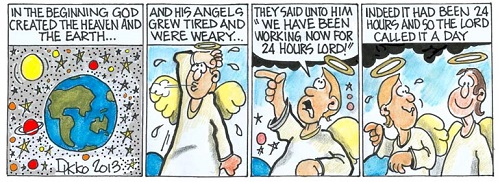



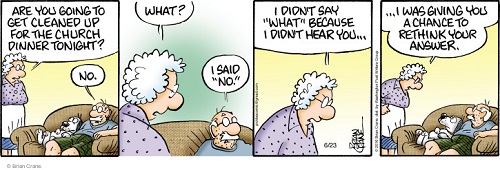

Frequently Asked Questions

Could Jesus Have Sinned?
Jesus, who is sinless, had to be tempted. That is quite a mystery. Why did He have to be tempted? In Matthew 4, we read that the devil came to Him and tempted Him. Three of the temptations are mentioned there. And in Hebrews 4:15 we are told that He was tempted in every respect like us but He didn't sin even once. It is amazing that Jesus Christ, the perfect sinless Son of God, was also subject to temptation in every area. The Bible says in Hebrews 6:20 that Jesus is our forerunner. Forerunner means somebody who has run the race in front of us and has shown us the path in which to follow. So, as One who has gone in front of us, He says to us today, "Follow Me."
The Bible says in Hebrews 12:1-2, "And therefore we also having so great a cloud of witnesses over our head, laying aside every weight and sin which surrounds us, let us run by patience to the race proposed to us: Looking on Jesus, the author and finisher of faith, who having joy set before him, endured the cross, despising the shame, and now sitteth on the right hand of the throne of God." Again we read, "For think diligently upon him that endured such opposition from sinners against himself; that you be not wearied, fainting in your minds.For you have not yet resisted unto blood, striving against sin:" (Hebrews 12:3-4) Jesus endured every temptation that can ever come to any human being. He was tempted in every point as we are and He overcame in the power of the Holy Spirit, as a man. If He had faced temptation as God, there would be nothing great about it. In fact, the Bible says that God can't be tempted (James 1:13).
So Jesus had to give up that privilege, when He walked on earth as a man, in order to be tempted, in order to be an example for us. If He overcame temptation in the power of God, and He, as God, tells us - human beings to somehow overcome, when we are not God, it would be like a father driving a car at 80 miles per hour, and telling his little son to run after him on the road, 'Follow me.' Isn't that ridiculous? - A father driving in a car at 80mph and telling his son to run after him? Then how can Jesus say, 'Follow me,' if He encountered temptation as God? In fact, in any case, as I said earlier, God cannot be tempted.
The fact is that Jesus encountered temptation as a man and overcame in the power of the Holy Spirit. And that is the same power He offers us. That is what gives us hope when we face temptation. The devil would like to rob you of that hope, by trying to tell you, 'No, you can't overcome temptation. You will always be defeated.' But you tell him, 'How did Jesus overcome?' He might say, 'Oh, He overcame as God.' Is that what the Bible says? No. He overcame Satan by quoting the word of God to Him. You can overcome Satan in the same way. The Bible asks you to take the sword of the spirit, which is the Word of God, and you can drive the devil away too, in the power of the Holy Spirit. Jesus prayed, sought for help, and overcame.
Suppose today we have to face some temptation, which Jesus never faced, we could say to Him, 'Well, Lord you don't understand what I am facing.' But we can never say that because He does understand. The Bible says He can sympathise with our struggle, with our weakness (Hebrews 4:15). The one thing that Jesus demonstrated though His life on earth was that with the power of the Holy Spirit, as a man, we can obey every commandment of God. If we don't do it, it is because we are not wholehearted as He was. That is why the Bible says, "He that saith he abideth in him, ought himself also to walk, even as he walked." (1 John. 2:6). Is that possible? If it is not possible there would be no such command in scripture.
Jesus Christ's life was a demonstration of how we are to live. Now, we may not be able to say that we are walking like Christ. In fact, I have never met anyone on earth who walks like Jesus Christ, neither would you have. But if we make that our goal and, if we have faith, we should press on to that perfection where we say, 'Lord I want to walk like You.' Then from one degree of glory to another, the Holy Spirit will conform us to Christ's likeness.
Paul said he hadn't attained it himself, but he was pressing on. He said that He pressed toward the mark, for the prize of the high calling of God in Christ Jesus. He wanted to live like Jesus lived. He made that his goal and, little by little, he approached it. But a person, who has no goal, is never going to get anywhere near there. It is like climbing a mountain. If you don't have the top of the mountain as your goal, what is going to happen? You are just going to be at ground level, even after 25 years. But if you keep the top of the mountain as your goal, every year will find you higher and higher and higher and higher, and little more and little more and little more like Christ. This is Christian growth. How did Jesus overcome? When He faced temptation and He felt the pull of it, He resisted it in the power of the Holy Spirit; He died to Himself and He overcame. That is why the Bible says, "Arm yourself with the same thought" (1 Peter 4:1-2).
Now there could be a misunderstanding here because some of us don't understand what is the essence of sin. The essence of all sin is doing your own will. Now, if that is the essence of sin, then what is the essence of holiness? Denying your own will and doing the will of God. That is holiness. We read what Jesus said in John 6:38, "Because I came down from heaven, not to do my own will, " -not to sin,- "but the will of him -God the Father- that sent me " That is holiness. In the Garden of Gethsemane He said, "Not as I will Father, but as Thou will." Jesus offered up His human will as a perpetual sacrifice. He said, "I never want to do My will." That is what is meant by Jesus never sinned. He never did His own will. Human nature is just the opposite. We see that in a little child; a child wants to do his own will. That stubbornness is sin.
Jesus warned His disciple in the Garden of Gethsemane. He said, "Pray, your flesh is weak. Your spirit may be willing to live a holy life but your flesh is weak." That is why we need the power of the Holy Spirit to deny our will and to do the will for God.
For answers to more frequently asked questions, click here: https://www.vaticaninexile.com/frequently_asked_questions.php
The Pope Speaks: January 2022
Are Priests Obliged to Take the Jab?

Before we proceed let us lay down some things that have already been determined. First of all the jab is NOT a vaccine in the traditional sense of the word. The word vaccine has been redefined to include the various jabs available for COVID. Therefore we will not use the word vaccine, but the word jab.
The evidence available indicates that the jabs were developed using tissue from two abortions in the 1970's. As such, they are remote cooperation in the sin of another, which is permitted to obtain some good. Jab mandates are immoral, but are being imposed. As such, it may be imprudent to disobey such an immoral mandate. We can recognize its immorality, but it is not our duty to fight every immorality around us, and there are many. In fact, discussion of one such immorality has been delayed, because of this important matter.
There is little real world data on the jabs and their effectiveness. Also there is little data on the possible side effects, short or long term, related to the jab. And so all that can be given is guidance in regard to receiving the jab or rejecting it.
For instance, if a man must take the jab in order to feed his family, he is certainly morally justified in doing so. One may ask, if he is obliged to take the jab in order to see to the needs of his family. An argument can be made in favor of this conclusion. Supporting one's family is extremely important.
However, the subject here is in relation to a question in regards to Traditional minded priests. Instead of presenting arguments about the legitimacy of their ministry, we will consider their duties based upon their own arguments for the legitimacy of their ministry. For more information, please refer to Our book, Will the Real Catholic Church Please Stand Up?
First of all, the principles are clear. Pastors and others having the care of souls have a duty in some cases to risk their lives for their flock. Other priests may also have such a duty, if the pastor is unavailable. The moralists are in agreement on this.
In 2003, Anthony Cekada wrote an article, Traditional Priests, Legitimate Sacraments. "Some authors say their obligation is based in the virtue of charity: 'When priests who have the cura animarum are lacking, other priests are bound out of charity to administer the sacraments.… in serious need for a community, [such priests] are bound to administer the sacraments, even at the risk of their lives, as long as there is reasonable hope of assisting and there is no one else who will help.' This obligation binds under pain of mortal sin. (Merkelbach 3:87)"
Let us analyze this. Traditional minded priests hold that priests, who have the cura animarum (care of souls, such as Pastors have) are lacking. They then hold that this authorizes them to administer the Sacraments in their place and that they have an obligation to do so. To be consistent, if the jab is required in order to administer the last rights in a hospital for instance, they have the duty to receive the jab, even if there is some risk to themselves. To argue that on personal grounds they may refuse it is to reject the whole basis they accepted ordination on, the necessity in this crisis to administer the Sacraments. If they refuse the jab, when required to fulfill the duty they claim to have, then they demonstrate by their actions that they may not exercise Holy Orders in any manner whatsoever.
Cekada observes: "The priesthood is not just a privilege that stintingly permits something; it is a munus or officium (duty) to do something: to offer sacrifice and to dispense sacraments. So for a priest the real question is always: 'What sacraments am I now obliged to confer?'" We can expand this to include the risk a priest must go to for the salvation of souls.
As a duty, the priest is no longer his own, but God's. All of us are God issue, in that we are not our own. We learned this in the May 2021 Olive Tree in the article, We Are Not Our Own. Priests are even more God issue in that we are not our own, but hold our position for the greater honor and glory of God and the salvation of souls.
Traditional minded priests are required to be consistent in their belief system. Otherwise, by their actions, they admit they may not function as priests. There is much inconsistency, and this is only one small area, but one that may speak loudly.
In making our decision in regard to the COVID-19 jab and whether or not to take it, let us keep in mind our obligations to God and our fellow man, disregarding the controversy surrounding the jab itself.


Saint Mark the Ascetic
On The Spiritual Law

182. Images already established in our intellect are more pernicious and stubborn than those which arise while we are thinking. The latter precede the former and are their cause.
183. One kind of evil dwells in the heart through long-continued prepossession; another kind attacks our thoughts through the medium of everyday things.
184. God assesses our action according to our intention; for it is said that the Lord will 'reward you according to your heart’ (Ps. 20:4).
185. He who does not persevere in examining his conscience will not endure bodily suffering for God's sake.
186. The conscience is nature's book. He who applies what he reads there experiences God's help.
187. He who does not choose to suffer for the sake of truth will be chastened more painfully by suffering he has not chosen.
188. He who knows God's will, and performs it according to his power, escapes more severe suffering by suffering a little.
189. If a man tries to overcome temptations without prayer and patient endurance, he will become more entangled in them instead of driving them away.
190. The Lord is hidden in His own commandments, and He is to be found there in the measure that He is sought.
Saints from East and West

10 January - Saint Gregory of Nyssa.
Sainted Gregory, Bishop of Nyssa, was a younger brother of Saint Basil the Great. His birth and time of upbringing coincided with the very heights of the Arian disputes. Having received an excellent education, he was at one time a teacher of rhetorical eloquence. In the year 372 he was ordained by Saint Basil the Great as bishop of the city of Nyssa in Cappadocia.
Saint Gregory was an ardent advocate for Orthodoxy, and together with his brother Saint Basil the great he fought against the Arian heresy. He suffered persecution by the Arians, by whom he was falsely accused in the year 376 of improper useage of church property, and thereby deprived of his cathedra and sent off to Ancyra. In the following year Saint Gregory was again in absentia deposed by a church-council of Arian bishops, but he continued to encourage his flock in Orthodoxy, wandering about from place to place. After the death of the emperor Valens (378), Saint Gregory was restored to his cathedra and joyously received by his flock.
In the year 379 his brother Saint Basil the Great died. Only with difficulty did Saint Gregory survive the loss of his brother and guide. He crafted a funeral oration to him and completed compilation of Saint Basil's study of the Six Days of Creation, the so-called "Hexaemeron." This same year Saint Gregory participated in the Council of Antioch, against heretics that disdained to honour the immaculate virginity of the Mother of God, and others at the opposite extreme that worshipped the Mother of God as Herself being God. He was chosen by the Council for an examination of churches in Arabia and Palestine to assert the Orthodox teaching about the Most Holy Mother of God. On his return journey Saint Gregory visited Jerusalem and the Holy Places.
In the year 381 Saint Gregory was one of the chief figures of the Second Ecumenical Council, convened at Constantinople against the heresy of Macedonias, who incorrectly taught concerning the Holy Spirit. At this Council, on the initiative of Saint Gregory, was completed the Nicean Symbol of Faith (i.e. the Creed).
Together with the other bishops Saint Gregory affirmed Sainted Gregory the Theologian in the dignity of Archpastor of Constantinople.
In the year 383 Saint Gregory of Nyssa was a participant in a Council at Constantinople, where he spoke a sermon about the Divinity of the Son and the Holy Spirit. In the year 386 he was again at Constantinople, and to him was entrusted to speak the funeral oration in memory of the empress Placilla. And again in 394 Saint Gregory was present in Constantinople at a Local Council, convened for resolving church matters in Arabia.
Sainted Gregory of Nyssa was a fiery defender of Orthodox dogmata and a zealous teacher to his flock, a kind and compassionate father to his spiritual children, and their intercessor before the courts. He was distinguished by his magnanimity, patience and love for peace.
Having reached old age, Saint Gregory of Nyssa died peacefully, soon after the Constantinople Council. Together with his great contemporaries - Saints Basil the Great and Gregory the Theologian - Saint Gregory of Nyssa had a significant influence on the Church life of his time. His sister, Saint Macrina, wrote to him: "Thou art reknowned both in the cities, and gatherings of people, and throughout entire districts; Churches do send off and summon thee for help."
Saint Gregory has come down in history as one of the most obvious and active Christian thinkers of the fourth century. Endowed with a profound philosophical talent, he perceived philosophy but as a means for a deeper penetration into the authentic meaning of Divine revelation.
Saint Gregory left behind him many works of dogmatic character, as well as sermons and discourses.

14 January - Blessed Odo of Novara.
Blessed Odo, a Carthusian monk of the twelfth century, stands out from among some of his saintly contemporaries by the fact that we have good first-hand evidence concerning his manner of life. Pope Gregory IX ordered an inquiry to be made with a view to his canonization, and the depositions of the witnesses are still preserved. One or two extracts will serve to sketch his portrait better than a narrative.
"Master Richard, Bishop of Trivento, having been adjured in the name of the Holy Ghost, the holy Gospels lying open before him, affirmed that he had seen the blessed Odo and knew him to be a God-fearing man, modest and chaste, given up night and day to watching and prayer, clad only in rough garments of wool, living in a tiny cell, which he hardly ever quitted except to pray in the church, obeying always the sound of the bell when it called him to office. Without ceasing, he poured forth his soul in sighs and tears; there was no one he came across to whom he did not give new courage in the service of God; he constantly read the divine Scriptures, and in spite of his advanced age, as long as he stayed in his cell, he laboured with his hands as best he could that he might not fall a prey to idleness." The bishop then goes on to give a brief sketch of Odo's life, noting that after he became a Carthusian he had been appointed prior in the recently founded monastery of Geyrach in Slavonia, but had there been so cruelly persecuted by the bishop of the diocese, Dietrich, that, being forced to leave his community, he had travelled to Rome to obtain the pope's permission to resign his office. He had then been given hospitality by the aged abbess of a nunnery at Tagliacozzo, who, struck by his holiness, got leave to retain him as chaplain to the community. Numerous other witnesses, who had been the spectators of Odo's edifying life, spoke of his austerities, his charity and his humble self-effacement.
One of these, the Archpriest Oderisius, deposes that he was present when Odo breathed his last, and that "as he lay upon the ground in his hair-shirt in the aforesaid little cell, he began to say, when at the point of death, 'Wait for me, Lord, wait for me, I am coming to Thee'; and when they asked him to whom he was speaking, he answered, 'It is my King, Whom now I see, I am standing in His presence.' And when the blessed Odo spoke these words, just as if someone were offering him his hand, he stood straight up from the ground, and so, with his hands stretched out heavenwards, he passed away to our Lord." This happened on January 14 in the year 1200, when Odo was believed to be nearly a hundred years old. He worked many miracles both during life and after death, but it horrified him to think that people should attribute to him any supernatural power. "Brother," he said to one who asked his aid, "why dost thou make game of me, a wretched sinner, a bag of putrid flesh? Leave me in peace; it is for Christ, the Son of the living God, to heal thee;" and as he said this he burst into tears. But the man went away permanently cured of an infirmity which, as the witness who recounts this attests from personal knowledge, had tortured him for many years. The cultus of Blessed Odo was confirmed in 1859.

Advice You Can Bank On
A Catholic Perspective On Finances
Tracking Our spending Habits
As we are moving forward in getting our finances under control, we time to put together our budget and see where our money is going. Let us follow last month's plan with a slight variation. Instead of 50, 30, 20. we are going to do 10, 50, 20, 20. We are also going to rearrange in light of principles set forth here.
This month we are going to prepare a budget and next month we are going to track where every penny goes. As the saying goes: "Watch the pennies and the dollars will take care of themselves." We read in Scripture in Luke (14:28-30): "For which of you having a mind to build a tower, doth not first sit down, and reckon the charges that are necessary, whether he have wherewithal to finish it: Lest, after he hath laid the foundation, and is not able to finish it, all that see it begin to mock him, Saying: This man began to build, and was not able to finish."
10% For God
"And that we would bring the first fruits of our land, and the firstfruits of all fruit of every tree, from year to year, in the house of our Lord." (2 Esdras 10:35) We need to put God first in our life not just financially but in all aspects. Our principle should be, God first. The Pope discussed the requirements for a living wage last year. https://www.vaticaninexile.com/july_2021_living_wages.php
50% For Necessities
As we saw last month, half of our income should go for necessities, food, clothing and shelter. "The needs category consists of housing, groceries, utilities, transportation, insurance, minimum loan payments, and child-care." Here is the main part of the budget.
20% for Savings
This starts with getting clear out of debt, beginning with those pesky credit cards. We have almost a half of a trillion in credit card debt in this country. That is $3,600 per household.
20% for Wants
"The wants category includes items such as eating out, gifts, travel, and entertainment." What do you spend in the various places here?
What Gives?
Now many will get done and find they are spending all of their income or even more, which is why we have credit card debt. Last month we discussed cutting the wants category first. As Saint Paul tells us: "For she that liveth in pleasures, is dead while she is living." (1 Timothy 5:6) So let us cut this as far as to five percent of our income before we look elsewhere.
The first place people go is cutting their giving to the work of the Church. The Commandment of the Church is clear on giving, but does not specify an amount. At the Traditional Catechism website there is a lesson on this. https://www.traditionalcatechism.com/giving_to_god_and_giving_to_the_poor.php God should not be cut first, but the amount we give Him may be reduced. The first reason is employers are not paying a living wage. God expects something from us, but He also understands the times we live in.
The next place we go is savings, but let us be careful here. Let us make sure we are spending less than we are bringing in. This is not negotiable.
In the final are, necessities cuts can be made as well. We may like T-bone steak, but can only afford ground beef.
A Living Wage
Let us consider this Scripture as we prepare our budget: "Remove far from me vanity, and lying words. Give me neither beggary, nor riches: give me only the necessaries of life: [9] Lest perhaps being filled, I should be tempted to deny, and say: Who is the Lord? or being compelled by poverty, I should steal, and forswear the name of my God." (Proverbs 30:8-9)
Pope Leo XIII defines a living wage as: "If a workman's wages be sufficient to enable him comfortably to support himself, his wife, and his children, he will find it easy, if he be a sensible man, to practice thrift, and he will not fail, by cutting down expenses, to put by some little savings and thus secure a modest source of income. Nature itself would urge him to this. We have seen that this great labor question cannot be solved save by assuming as a principle that private ownership must be held sacred and inviolable. The law, therefore, should favor ownership, and its policy should be to induce as many as possible of the people to become owners." (Rerum Novarum)
Our Plan
Over the next three months we will do three things.
In January we will prepare a budget, based on what we think we are spending.
In February we will track how we spend every penny, dividing it up under the four categories we have considered, God, necessities, savings and wants.
In March we will analyze what we learned in February and adjust our budget accordingly. Lent is a good time to discipline ourselves in all ways. And watching how we spend our money is quite important.
"And he said also to his disciples: There was a certain rich man who had a steward: and the same was accused unto him, that he had wasted his goods."(Luke 16:1) Have we wasted God's goods? "And said: Naked came I out of my mother's womb, and naked shall I return thither: the Lord gave, and the Lord hath taken away: as it hath pleased the Lord so is it done: blessed be the name of the Lord." (Job 1:21) God has given these goods into our care for His work. He can just as easily take them away.

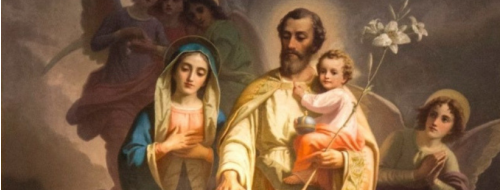 Family Matters
Family Matters
A Vision That Motivates
Proverbs 29:18
When there is no vision, the people shall cast off restraint, be scattered abroad, and perish: but he that keepeth the law is blessed.
There was, in the days of Samuel the prophet, a sad state of affairs in Israel. The ministers of the day had lost their relationship with God, and compromise was creeping in on every hand. God used a few revealing words, which clearly describe the condition of the nation at that time. “There was no open vision” I Samuel 3:1. Although we have several chapters of sad commentary to read after this statement, theses words say it all, in a nutshell. There was no open vision, and the people were perishing. We seem to be suffering from some of the same in modern America.
What is a vision? It is important to give some definition to this powerful little word because I w3ill be using it many times. In fact, the hope and future of your family lies hidden in this one word. When I use the word “vision,” I am referring to a mental image imprinted on the heart by the Spirit of God. A vision is that which you see with the eyes of your heart. The Apostle Paul described it as something “written not with ink, but with the Spirit of the living God; not in tables of stone, but in the fleshly tables of the heart.” II Corinthians 3:3
A vision is a spiritual revelation of the mind and will of God. That revelation usually comes through the avenue of the Scriptures. When we read the Word of God in the Spirit, dreams and and vision flame up in our heart. When studying the Hebrew word “dream”, we find that it means “to make healthy”, or to be strengthened” A dream is an ideal or aspiration that makes us healthy and strong. Isn't that beautiful? We know that dreams work like that in man. When a man has a dream, he comes alive, he is filled with energy, and his whole being is consumed with what he sees and wants. This is what I mean when I use the word “vision.”
Probably the most famous verse in the Bible on this subject is the one listed at the beginning of this article: Proverbs 29:18
“When there is no vision, the people shall cast off restraint, be scattered abroad, and perish: but he that keepeth the law is blessed.” A study of this verse is very revealing to our present day problems. The people as a whole do not see what God sees or wants. There is a lack of open vision in our land. That spiritual seeing of the heart is missing in too many churches.
The phrase “cast off restraint” It does not mean to go to hell. Is is much more practical than that. Allow me to paraphrase my study of this verse. “When there is no spiritual seeing of God's will in the heart, the people will cast off restraint, go naked, and live like savages.” What a picture of of the degenerated condition of people today. In addition, of course, the end of that process is that they will go to hell. We must get a captivating view of God's will today and hold the eyes of our heart on it. Until it motivates and activates us to keep his laws again. We know that this whole process of degeneration begins when a people who know God, cease to walk closely with Him. The seeing grows dim because it is God's presence in the heart that stimulates vision. As the vision grows dim, the people begin to cast off restraint. We know the rest of the story. This explains the confusion of much of Christianity.
(next month we will continue with the subject of God-Breathed Visions)


Books to feed your faith!
Instructions For Preachers: Getting Your Message From the Pulpit to the Pew
$9.95
Saint Alphonsus Marie de Ligouri presents the proper method of preaching, that will move hearts to repentance and encourage people to live a virtuous way of life. The first chapter is devoted to this method of preaching, which is opposed to the showy method of many preachers of his day and even ours. Many seek to gain the praise of their listeners, rather than to bring them to repentance and educate them in the way of salvation. Saint Alphonsus, following the example of Saints Francis de Sales and Vincent de Paul sought to teach priests how to make saints and save souls rather than impress audiences. The second chapter refutes a critic. Saint Alphonsus begins by explaining the criticism: “My critic, you say, maintains that, though sacred orators should preach in a clear and orderly manner, they should never condescend to speak in a popular style; because, according to him, such a style is unworthy of the dignity of the pulpit and degrading to the word of God.” He then proceeds to defend his position and give further useful instructions to preachers. The third chapter is the refutation of a book On Preaching by the Author of the Philosophical Dictionary, whose name is unknown. Saint Alphonsus describes this book as follows: “Moreover, on seeing the title of the work, On Preaching, one would have thought that it treated of the utility and even of the necessity there is in this world of preaching to the people in order to enlighten them, because in consequence of sin and the corruption of their nature they are enveloped in darkness, and naturally inclined, not to what is good and virtuous, as the author wishes, but to evil and to vices. Now this is not the case: the end of the work is to discredit preaching, by representing it as entirely useless for the reformation of morals.” He then proceeds to outline the author's case and then present his case. Contained here are more useful recommendations to preachers. Finally, we close with a chapter on the usefulness of missions. This has been excerpted from The Complete Works of Saint Alphonsus, which was compiled and translated by Father Eugene Grimm. (1835-1891) All is excerpted from a much larger work on Preaching, and serves as an excellent guide for anyone who enters the pulpit.

Commentary on the Book of Psalms
By Saint Robert Bellarmine
$24.95
The print of this edition is 12 point, larger than an earlier edition in print. In these days the Psalms are little used in the private devotions of lay Catholics; and forms of prayer, which have no authoritative sanction, and which are often little recommendable, either for sentiment or expression, are used, instead of those which have been dictated by the Holy Ghost. The reason of this notable change in the practice of the faithful must be that they do not understand the Psalms. This work was prepared for the use of the laity, but clergy and religious will find it very useful in understanding the psalms they pray in the Divine Office.
Saint Alphonsus Ligouri -Charity is patient, is kind: charity envieth not, dealeth not perversely; is not puffed up; Is not ambitious, seeketh not her own, is not provoked to anger, thinketh no evil; Rejoiceth not in iniquity, but rejoiceth with the truth; Beareth all things, believeth all things, hopeth all things, endureth all things. (I Corinthians 13:4-7) Saint Paul wrote wonderfully about charity in the 13th chapter of First Corinthians. Saint Alphonsus takes these words and gives a simple view of the Catholic way of life and an excellent introduction into the spiritual life. This is excerpted from his work, The Holy Eucharist, which has been excerpted from The Complete Works of Saint Alphonsus, which was compiled and translated by Father Eugene Grimm. (1835-1891)
Will the Real Catholic Church Stand Up?
Kindle $2.99 / Paperback $9.95
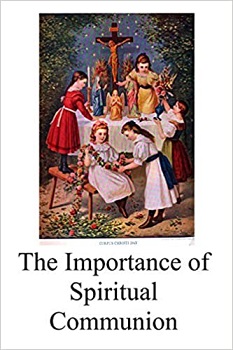
The Importance of Spiritual Communion
Kindle $2.99 / Paperback $5.99
If we cannot receive Holy Communion actually, then let us do so spiritually. These prayers and instructions have been gathered from the Saints and other venerated spiritual writers. Spiritual Communion has been a part of the spiritual life for decades. Growing up I was instructed to make a Spiritual Communion, when I could not go to Communion such as when I assisted at a second Mass. The same is true if one finds oneself at Mass, but not fasting. There are times coming, when it will be difficult, if not impossible to assist at the Holy Sacrifice of the Mass. We should be prepared for such times.
For More Good Traditional Catholic Books:

Shrimp Gratin

Ingredients
1 pound raw shrimp, size 26-30 is great, peeled and deveined
2 garlic cloves, minced
1 cup white or cremini mushrooms, wiped of dirt and julienned
2 green onions, chopped
3/4 scant cups bread crumbs
1/2 cup parmesan cheese, grated
4 tablespoons unsalted butter
1/4 cup dry white wine
Kosher salt and fresh ground white pepper
Directions
Preheat your oven to 400?F.
Place bread crumbs and the parmesan into a bowl. Add 2 tablespoons of melted butter and season the mix with salt and pepper. Mix everything really well to distribute the butter this will help a great deal in getting the top to brown evenly.
Put the shrimp into another mixing bowl and add green onions, mushrooms and garlic. Toss to combine, season with salt and pepper then combine this mixture with half the breadcrumbs. Sprinkle with the white wine and toss again.
Fan the shrimp out in individual gratins or one large gratin or casserole. Top with the remaining breadcrumbs.
Bake for 13 to 20 minutes or until the top is brown and the shrimp are cooked through. If you have over lapped the shrimp a great deal it might take longer to cook and you may need to back the oven down to 375?F so the topping doesn’t brown to quickly. Serve.
Sally's Special Soft Oatmeal Cookies

Ingredients
1 cup butter, softened
1 cup white sugar
1 cup packed brown sugar
2 eggs
1 teaspoon vanilla extract
2 cups all-purpose flour
1 teaspoon baking soda
1 teaspoon salt
1 1/2 teaspoons ground cinnamon
3 cups quick cooking oats
Directions
In a medium bowl, cream together butter, white sugar, and brown sugar. Beat in eggs one at a time, then stir in vanilla. Combine flour, baking soda, salt, and cinnamon; stir into the creamed mixture. Mix in oats. Cover, and chill dough for at least one hour.
Preheat the oven to 375 degrees F (190 degrees C). Grease cookie sheets. Roll the dough into walnut sized balls, and place 2 inches apart on cookie sheets. Flatten each cookie with a large fork dipped in sugar.
Bake for 8 to 10 minutes in preheated oven. Allow cookies to cool on baking sheet for 5 minutes before transferring to a wire rack to cool completely.
Video sermons and instructions: Timeless timely truths for living the Faith
Epiphany 2013
Not Everything on the Internet is True
Sunday Sermon: A Man With No Name
Music: Wise Men Still Seek Him

Encouragement for Today
Therefore encourage one another and build one another up.... I Thessalonians 5:11
We believe that through our assorted podcasts, Vlogs, audio downloads and devotional blogs, you will find an assorted Treasure Chest of...
- Sermons
- Classic Catholic Audio Books.
- Devotionals
- Scripture Studies
- Catechism Lessons
- Old-Time Christian radio programs
- Catholic Videos
...that will be a help in your faithful walk with the Lord.
LEARN MORE AT THE ENCOURAGEMENT FOR TODAY WEBSITE: https://www.encouragementfortoday.com
Why Are Plants Green?
"I am not worthy of the least of all thy mercies, and of thy truth which thou hast fulfilled to thy servant." - Genesis 32:10a

One of the criticisms of solar power is that it is so variable. Clearly, a solar plant is going to produce no energy at night and an inadequate supply when the sky is cloudy. On the other hand, a suitable size plant could over-produce when sunlight is intense.
Plants have a similar problem. The rapidly changing incidence of sunlight on their leaves could, conceivably, cause problems within the plant. However, researchers have discovered that plants have mechanisms to cope with these variations, and one such mechanism could answer the old question: “Why are plants green?”
Plants produce high energy carbohydrate molecules from water vapor and carbon dioxide by the well-known process of photosynthesis. This endothermic reaction requires the input of energy in the form of light, and the reaction is catalyzed by the green dye chlorophyll. What many of us have not considered is why chlorophyll is green.
White light is a mixture of all three primary colors – red, green and blue – which have increasing frequency and, hence, increasing energy, in that order. The remarkable thing about plants, therefore, is that they are absorbing light energy only at either end of the visible spectrum while rejecting – and reflecting – the middle of the spectrum, which is green. Researchers have shown that this selective absorption of certain frequencies minimizes “noise” and, therefore, enables the plant to cope with rapidly changing conditions of sunshine.
God has made plants with a truly remarkable mechanism for growth.
Prayer: Thank You, Lord, for Your amazing provision for everything that You have made. Amen.
Catechism Catch-Up
The Necessity of Baptism
Baptism is the sacrament by which a person, whether a baby, child, or adult, receives an indelible spiritual mark, is cleansed of all sin and is reborn into the family of God, being sanctified by Christ to everlasting life by means of the sign of water and the action of the Holy Spirit.
The Catechism of the Council of Trent gives this definition:
“The Sacrament of regeneration by water in the word. By nature we are born from Adam children of wrath, but by Baptism we are regenerated in Christ, children of mercy. For He gave power to men to be made the sons of God, to them that believe in his name, who are born, not of blood, nor of the will of the flesh, nor of the will of man, but of God.”
Christians have always interpreted the Bible literally when it declares, “Baptism . . . now saveth you also: not the putting away of the filth of the flesh, but the examination of a good conscience towards God by the resurrection of Jesus Christ.” (1 Peter 3:21)
But Peter said to them: Do penance, and be baptized every one of you in the name of Jesus Christ, for the remission of your sins: and you shall receive the gift of the Holy Ghost. (Acts 2:38)
To do penance is to show or express before God a true sorrow over one’s sins,...
which is not only required by God but also by human nature; human beings have an innate need to mourn tragedies, and our sins are tragedies.
To be baptized, translated literally, means to immerse.
The definition is not referring to the “how” but to the “results”. An example, when it comes to water, is this. If you dive into the pool, the results are you have become immersed. But if you take a shower, although the water is pouring over you, your also being immersed in water. It is not how you became immersed it is the end result that the word baptizo references. Barclay M. Newman’s, A Concise Dictionary of the New Testament defines baptismos, which possesses the same root as the verb, baptizo, but in the form of a noun: “ritual washing, ablution, baptism; washing (of hands). We will immerse ourselves in this particular subject (pun intended) in future lessons concerning Baptism.
The point to notice, in the words of St. Peter, is that a person must show true sorrow over ones sins and to be baptized for the remission of your sins.
Concerning the Intention of the Adults being baptized:
The Catechism of the Council of Trent says:
“They must desire and intend to receive it; for as in Baptism we all die to sin and resolve to live a new life, it is fit that it be administered to those only who receive it of their own free will and accord; it is to be forced upon none. Hence we learn from holy tradition that it has been the invariable practice to administer Baptism to no individual without previously asking him if he be willing to receive it.”
Faith
“Besides a wish to be baptized, in order to obtain the grace of the Sacrament, faith is also necessary. Our Lord and Saviour has said: He that believes and is baptized shall be saved.”
Repentance
“Another necessary condition is repentance for past sins, and a fixed determination to avoid all sin in the future. Should anyone desire Baptism and be unwilling to correct the habit of sinning, he should be altogether rejected. For nothing is so opposed to the grace and power of Baptism as the intention and purpose of those who resolve never to abandon sin.”
Concerning the Parents of the infants:
The same would be applied until the infant comes to an age of accountability and make a decision for themselves. That does not mean that they must be re-baptized. As the Catechism says: “This doctrine is taught by the Apostle when he says: One Lord, one faith, one baptism. Again, when exhorting the Romans, that being dead in Christ by Baptism they should take care not to lose the life which they had received from Him, he says: In that Christ died unto sin, he died once. These words seem clearly to signify that as Christ cannot die again, neither can we die again by Baptism. Hence the holy Church also openly professes that she believes one Baptism. That this agrees with the nature of the thing and with reason is understood from the very idea of Baptism, which is a spiritual regeneration. As then, by virtue of the laws of nature, we are generated and born but once, and, as St. Augustine observes, there is no returning to the womb; so, in like manner, there is but one spiritual generation, and Baptism is never at any time to be repeated.” All the graces had been given during their baptism as an infant.
And Paul says, “And now why tarriest thou? Rise up, and be baptized, and WASH away thy sins, invoking his name. (In the name of the Father, Son and the Holy Ghost)” (Acts 22:16)
Know you not that all we, who are baptized in Christ Jesus, are baptized in his death?
For we are buried together with him by baptism into death; that as Christ is risen from the dead by the glory of the Father, so we also may walk in newness of life. (Romans 6:3–4)
Buried with him (Christ) in baptism, in whom also you are risen again by the (or through the) faith of the operation of God (in the powerful working of God), who hath raised him up from the dead. And you, when you were dead in your sins;...he hath quickened together with him, forgiving you all offences: (Colossians 2:11–13)
And so the early Church Fathers wrote in the Nicene Creed (A.D. 381), “We believe in one baptism for the forgiveness of sins.”
And the Catechism of the Council of Trent states that it is “of highest importance to the faithful...to learn that the law of Baptism, as established by our Lord, extends to all, so that unless they are regenerated to God through the grace of Baptism, be their parents Christians or infidels, they are born to eternal misery and destruction. Pastors, therefore, should often explain these words of the Gospel: 'Unless a man be born again of water and the Holy Ghost, he cannot enter into the kingdom of God.' (John 3:5)”
Two Other Ways the Fruits of this Sacrament may be Received
In addition to the normative Baptism by water and Spirit that Christ commands, there are also the merciful "Baptism of Desire" and "Baptism of Blood." While Christ has given us the Sacrament as outlined above, and we are bound to obey Him, the fruits of sacramental Baptism may be had through these two other means. We must remember that while we are bound by the Sacraments, God is not, and He can pour out His graces in other ways.
The Catechism of the Council of Trent clearly says concerning Baptism of desire:
“Should any unforeseen accident make it impossible for adults to be washed in the salutary waters, their intention and determination to receive Baptism and their repentance for past sins, will avail them to grace and righteousness.”
Also we read concerning Baptism of Blood:
St. John Chrysostom
"As those baptized in water, so also those who suffer martyrdom are washed clean, [the later] in their own blood,"
St. Augustine
"For whatever unbaptized persons die confessing Christ, this confession is of the same efficacy for the remission of sins as if they were washed in the sacred font of baptism. For He who said, "Except a man be born of water and of the Spirit, he cannot enter into the kingdom of God," made also an exception in their favor, in that other sentence where He no less absolutely said, "Whosoever shall confess me before men, him will I confess also before my Father which is in heaven;" and in another place, "Whosoever will lose his life for my sake, shall find it." And this explains the verse, "Precious in the sight of the Lord is the death of His saints." For what is more precious than a death by which a man's sins are all forgiven, and his merits increased an hundred fold?"
Conclusion:
"Baptism of Desire" is a much-abused concept, twisted beyond recognition such that it leads to the false idea of universal salvation, to a denial of the need to be a part of the Church to be saved, and to disobedience to Christ's command to preach the Gospel and to baptize.
Its meaning must be kept crystal-clear: the Church's teaching is that Baptism -- which includes "Baptism of Desire" and Baptism of Blood" -- is necessary for salvation, as it is how one enters the Church, outside of which there is no salvation. Those who are able to be baptized by water and Spirit must be baptized by water and Spirit. Those who are unable to receive the Sacrament in the normal way, but would receive the Sacrament if he were able, might receive sanctifying grace, under the conditions above, and be united to the soul of the Church. Meanwhile, we are to preach the Gospel and bring all to the Church -- the source of the Sacraments which are media of grace. This is what we were told to do by Christ, and what we must do! Those we can't reach are left to the mercy of God, and we can only pray -- but never presume -- that their souls are illuminated before death so they are contrite for their sins and filled with a love for God that can save them per the sanctifying grace of "Baptism of Desire," thereby uniting them with the soul of the Church outside of which there is no salvation.
READ MORE FROM THE TRADITIONAL CATECHISM AT THE WEBSITE: https://www.traditionalcatechism.com
Living Catholic:
How Suffering Prepared A Leader: The Story Of Joseph

How would you respond if your family despised you so much that they arranged for you to be sold to a slave trader? How would you feel if your boss, whom you had faithfully served with impeccable integrity, was quick to believe a lie about you and subsequently have you thrown into jail? How would you react if a comrade broke a promise and as a result, you spent several years in confinement?
Joseph experienced each of these circumstances. You can read the full account of his sufferings in Genesis 37–50.
God Had a Purpose for Allowing Joseph to Suffer
By Joseph’s own testimony, the sufferings of Joseph—physical, mental, and emotional agonies—had been allowed by God so that Joseph could fulfill God’s plan: to save many lives. “You thought evil against me: [Joseph’s brothers who had sold him into slavery many years previously], but God turned it into good, that he might exalt me, as at present you see, and might save many people.” (Genesis 50:20).
Joseph Rejected Bitterness and Chose to Forgive
As Joseph responded to suffering with faith, meekness, and humility, God molded and shaped a leader. And that leader would not only end up saving his betrayers’ lives, but he would fully forgive them and provide abundantly for their needs. Such is the potential when a man chooses to reject the empty revenge of bitterness and instead to embrace the benefits of suffering.
Why Did God Allow Bad Things to Happen to Joseph?
If Joseph asked you why God allowed him to be sold into slavery by his own brothers; to be torn from his family and home; to be falsely accused by the wife of Potiphar, to whom he had been loyal and devoted; and to be unjustly imprisoned and ignored, how might you answer?
Here are a few possible answers. There are many more.
- To enable him to overcome a prideful attitude and learn humility (See Proverbs 15:33.)
- To teach him how to serve (See Genesis 39:4, 22-23, 40:4; Matthew 20:26-28; and Mark 9:33-35.)
- To train him to be faithful (See Genesis 39:2-6 and Matthew 25:21.)
- To test him in moral purity (See Genesis 39:7-20 and Matthew 5:11-12.)
- To prepare him to comfort others (See Genesis 50:21 and II Corinthians 1:3-5.)
- To prepare him to lead his brothers to repentance (See Proverbs 16:6.)
- To teach him patience (See Genesis 40:1-14, 23; and I Peter 5:10.)
- To enable him to see God accomplish His purposes and fulfill His promises (See Genesis 37:5-11, 41:32, 42:1-5, 45:4-7, and 50:20.)
- To teach him how jealousy can cause suffering (See Genesis 37:3-4 and 17-36.)
- To save many lives (See Genesis 50:20.)
- To let him experience the blessing of God’s favor (See Genesis 39:2-6 and 21-23.)
- To place him in a position to tell Pharaoh of God’s power (See Genesis 41:15-16, 25, 28, 32-33, and 38-44.)
We Can Choose to Trust God, Even as Joseph Did
We are not to regard suffering as a strange occurrence, but rather as a sign of God’s work in our lives. (See I Peter 4:12-19 and Romans 9:14-24.) “Have confidence in the Lord with all thy heart, and lean not upon thy own prudence. In all thy ways think on him, and he will direct thy steps. Be not wise in thy own conceit: fear God, and depart from evil:” (Proverbs 3:5-7).
To Learn More Principles For Life Go To: Resources: Principles of Life


Pray for the Holy Father! Pray with the Holy Father!
- Your prayers are asked this month and every month for the intentions of the Holy Father, Pope Michael.
- Please pray for the success and growth of the new Chrysostom Bible Institute. Check out the wonderful work it is doing and see how you can get involved!
- Your prayers and support are asked in a special way for the soon to be established House of Prayer.
- Pray especially that the Holy Ghost inspires and helps us prepare spiritual manuals and days of recollection to make available to all.
- Keep in your prayers our Podcast Ministry, a new way to reach out in the missionary work of the Church! We ask for prayers for our other activities world wide. We have made good contacts in the Philippines and Japan and ask prayers that these contacts will bear much fruit for the salvation of souls.
- Be sure to keep St. Helen Catholic Mission in your prayers. Why not go on over to the site now and see what they have to offer and how you might be able to help!
- Also we ask you to keep in prayer our increasing missionary work in the United States and elsewhere.
- Pray for those outside the Church and those who do not know God, that they may see the light of grace and be led safely home to the refuge of the Holy Catholic Church.
- As always, we also ask that you pray for yourself! Never forget your own state of soul. God is calling you to His service in His love. We know that our Lord can count on you to answer.
- We are all praying especially for you, too. May you correspond with every grace of God!
- In what other needs or intentions may we pray for you? Let us know!
- Let us remember that the Church runs on prayer. Without your prayers, God will not work in hearts and souls to bring them to a knowledge of the truth. (I Timothy 2:4)


To Donate online go to:

To Donate by Mail:
Our address is
Vatican in Exile
829 NE Chester
Topeka, Kansas 66616
Make Checks payable to:
Vatican in Exile




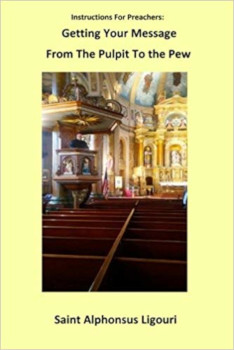
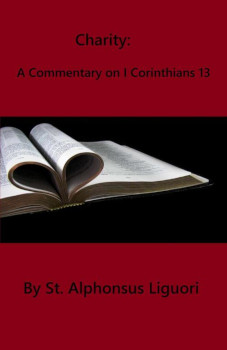
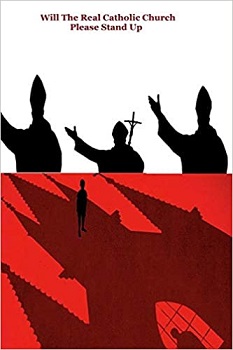









 Follow
Follow


